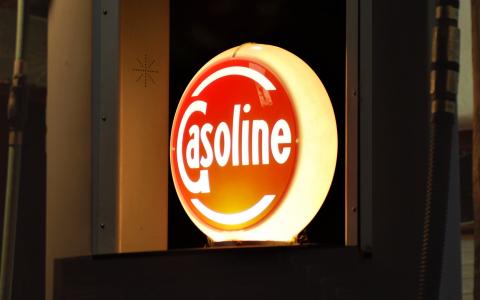
(Bloomberg) - Congressional Democrats’ strategy to address rising costs through a gas-tax holiday and other legislation are shaping up as more of a political crutch than an inflation cure ahead of the midterm elections.

The proposals may set up legislative fights positioning Democrats on the side of relief for consumers, but economists are skeptical there’s much Congress can do to tamp down the inflationary pressure pumping up prices.
The Federal Reserve holds the most powerful tool to bring down inflation, by raising interest rates, as the central bank is expected to do when it meets in mid-March. And rate increases typically take six to 18 months to deliver their full effect on the economy.
“It puts a politician in a bad spot when the truth is the main solutions to inflation are a combination of patience and the Federal Reserve and there’s not a lot they can do,” Jason Furman, who was a senior economic adviser to former President Barack Obama, said.
Several of the Senate’s most vulnerable Democrats are spearheading a proposal to suspend the federal 18-cents-a-gallon gasoline tax until next year and others are drafting a bill to lower insulin prices. Democrats are also considering pulling out popular pieces of President Joe Biden’s stalled economic agenda addressing prescription drug and child care costs.
“None of these ideas so far will help to a meaningful degree, and could do some harm because they could juice up demand at a time supply is constrained by the pandemic and worsen inflation,” said Mark Zandi, chief economist for Moody’s Analytics.
Michael Feroli, chief U.S. economist for JPMorgan Chase & Co., said the proposals “probably wouldn’t affect our inflation outlook,” which calls for inflation to climb to an 8.2% annual rate in the second quarter before tapering to a 6.7% annual rate in the third quarter, just before the congressional elections.
A Quinnipiac University poll released Wednesday shows inflation as the most urgent issue for 36% of Republicans, 32% of independents and 13% of Democrats.
The Biden administration and top Federal Reserve officials initially brushed off concerns last year about inflation as “transitory” while global supply chains readjusted to a growing economy after the pandemic shutdown.
Democrats have been searching for tools to ease inflation as price increases continued and worsened, with a January inflation report showing consumer prices rose 7.5% from a year earlier, the steepest climb in almost four decades. Republicans have been hammering the issue ahead of the midterm elections, when they need to gain just five House seats and one Senate seat for control of Congress.
Paying at the Pump
Senators Maggie Hassan of New Hampshire and Mark Kelly of Arizona, two of the Democrats most at-risk in the November election, are leading the charge for the gas-tax holiday.
Though the federal government could act quickly to lower gasoline taxes, the savings at the pump would likely be disappointing, said Gilbert Metcalf, a Tufts University economics professor who specializes in energy tax policy.
What’s more, suspending the federal gas tax would siphon off a source of funding from badly needed highway construction and maintenance that Congress only months ago sought to address with a historic bipartisan infrastructure bill.
“The bulk of the tax cut will not be going to consumers in most parts of the country,” said Metcalf, a former Obama administration senior Treasury official. “We end up with the real benefit of the tax cut going to the refiners and the wholesalers and the distributors.”
Several studies have shown savings from a gasoline tax reduction, especially a temporary one, are usually split between consumers and sellers. When Illinois and Indiana suspended a 5% gasoline tax in 2000, retail prices only dropped 3%, according to an analysis by MIT economist Joseph Doyle and Krislert Samphantharak of the University of California San Diego.
The tight supplies and volatility in current gasoline markets are likely to tilt the benefits even more toward sellers rather than consumers, Metcalf said.
Democratic Senator Ben Cardin has expressed reservations about a gas-tax holiday.
“If I were a king for a day, I think I would be more focused on policies that would lower the cost of living over the next few years,” such a child-care subsidies and low-income housing tax credits, he said Wednesday on Bloomberg Television’s “Balance of Power With David Westin.”
Targeted initiatives such as a cap on out-of-pocket prescription drug costs for Medicare beneficiaries may deliver relief to some people but won’t do much to reduce inflation’s impact on the broad public, said Benjamin Page, a senior fellow at the Urban-Brookings Tax Policy Center.
Meanwhile, Biden’s supply-chain initiative helps but isn’t making a big quantitative difference, Furman said. The cupboard “is even barer” for Congress, he added.
By Mike Dorning



